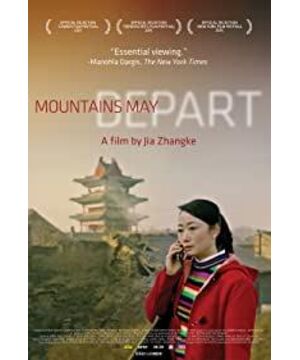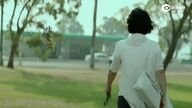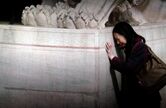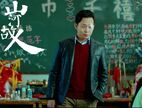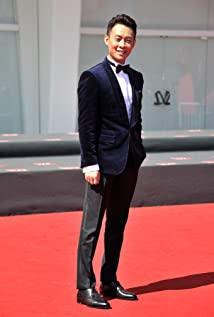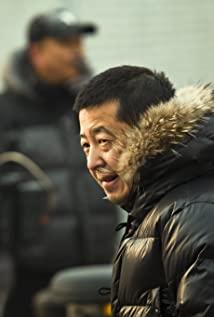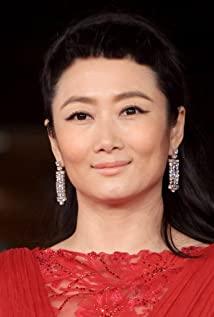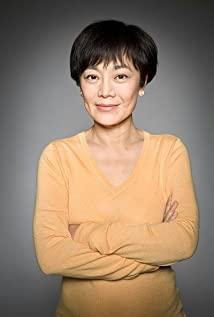I like Jia Zhangke.
Watching his films always reminds me of my hometown, which in reality has changed beyond recognition.
I know that the era I live in is full of unstoppable changes, and Jia Zhangke's lens is like the dust in my hometown factory, it is everywhere, you can feel it on your fingers, drying and corroding your skin , you want to wipe it off, but you can't. It is attached to the surface of everything, the leaves along the road, buildings, factory workshops, the scene is covered with a layer of gray, just like my childhood memories.
And his movies wiped away the ashes of that layer of memory.
2
Jia Zhangke began to tell stories. After Xiaowu, Jia Zhangke didn't like telling stories very much. He liked to use the lens to leave you blank. The meaning between all the frames is the helplessness he weaved for you. God knows how keen he is. It captures the most real footage of China for us at the moment.
In "Xiao Wu", in the song-ordering program on the TV station, "find a red paper to wrap it up" before going to give the bride price; The truth of the bow singing "I love you like a mouse loves rice" in a straight voice is something that other directors don't shoot or even realize. It's all too real, like unrepaired urban bushes on the side of the street.
Jia Zhangke started telling stories from his hometown of Fenyang.
The city of mines in Luliang Mountain that is always gray.
"Old Man in Mountains and Rivers" is a story told by Jia Zhangke in a tender and tragic manner. If "Tian Destiny" is a single piece of news, then this time the old people of the mountains and rivers are full of narrative, and pay more attention to the development of the characters' emotional relationships to promote the narrative.
The three segments and three frames (4:3, 16:9, 16:10) of the film respectively witness the changes of age (past, present, future), emotion (friendship, love, family affection), and geography (Fenyang, Shanghai, Australia). .
In 1999, 2014 and 2025, the three time periods of the story development have blanks and jumps. The tension of the characters continues to weave the attention of watching the movie, but the language of the camera lens already has Jia Zhangke's consistent sense of reality.
The triangular emotional story of Tao, Zhang Jinsheng, and Liang Zi is no accident, and Liang Zi, who came back with lung cancer, is a kind of sadness destined for the times. During the quarrel and separation, he wrote about the normal life and economic situation in the county.
But the story of 2025 in the third paragraph is still a bit flawed compared to the previous two paragraphs. After all, Jia Zhangke has life experience, so the third paragraph seems empty. And after I played the back of Ye Qianwen's song by Zhang Aijia, I actually saw the architectural shadow of the Greater China Hilton, so this part was shot in Shenzhen Kerry Construction Plaza?
Since then, Zhang Aijia and Dong Zijian's year-end love has also made me dance all the time, which is a bit abrupt and doesn't have the "earth" of Fenyang.
The 3
title "Old People of the Mountains and Rivers" appeared after more than fifty minutes of the entire first part. From that moment on, the previous stories and people, and the later stories and people, can no longer go back.
Everyone can only accompany you for a short distance, and sooner or later it will be a separation. I like the two scenes on the green-skinned train. There are not many scenes and words, but they touch the hearts of the people. The old father heard that Wen Tao chose Zhang Shengsheng to be speechless and stood alone in the corner of the carriage with a water bottle. Sadness, a kind of helplessness after insight; and Tao, who has run out of thousands of sails, faced his estranged son and said, "Everyone can only walk with you for a short distance", a slow train, a bunch of keys, two paragraphs of family affection and concern It was so sticky.
Among the three, Liang Zi, who was unwilling to go away from his hometown, was still a low-level coal miner, and also suffered from pneumoconiosis. He returned to Fenyang in a humble way; Zhao Tao, who never left Fenyang, accepted marriage on the path he chose. , divorce, the estrangement and separation of his son; Zhang Jinsheng, who left his homeland, wore a hometown outfit, a teacup with a lid and a fat belly in a distant Australia, talking in his hometown dialect in a modern building that doesn't fit in. He can't go back. home. Perhaps, it is precisely because I can't go back that I talk about it so much.
At the end of the story, the swan-haired snow is still flying like before. Zhao Tao, who was in his twilight years, alone and a dog, danced alone in the heavy snow, so beautiful that people shed tears.
Suddenly, all the memories of 2 hours have grown old and lost all the way.
View more about Mountains May Depart reviews


